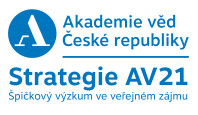Theorising Temporally Varied Phenomena: Disaster Sociology and the Speed of Scientific Knowledge Production
Dr. Eric L. Hsu, University of South Australia
Pořádá Kabinet pro studium vědy, techniky a společnosti FLÚ AV ČR
FLÚ AV ČR, Jilská 1, Praha 1, studovna CMS
-
- Abstrakt
-
Plakát ke stažení ZDE.
Within some strands of sociological research, there has been a tendency to concentrate on rapidly occurring phenomena. This is perhaps nowhere more evident than in the field of disaster sociology, which has tended to restrict its definition of disasters—and hence its purview—to temporally focused social disruptions. In this paper, I seek to call into question this way of conceptualizing disasters. I put forward the case for why disasters ought to include social breakdowns that are temporally varied. A broader temporal view of disasters expands what disaster researchers investigate. It prompts researchers to take more of an interest in certain phenomena, such as heat waves and droughts, which have remained underexplored in the disasters literature. It also encourages the field to consider wholly new kinds of phenomena, which are so temporally complex that they fall outside current disaster classifications. By orienting the field to social disruptions that cannot simply be classified as being either temporally focused or temporally diffuse, my broader aim in this paper is to problematize the 'fast/slow' dichotomy that currently pervades many aspects of sociological thought. To further develop this line of critically inquiry, I also investigate how recent scholarly debates have theorized the speed of scientific knowledge production. I explore what it might mean to frame the accelerated production of scientific knowledge as a temporally varied process.



